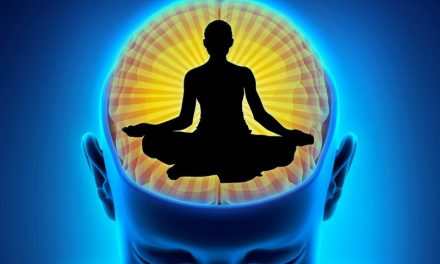Clinically, we understand death to mean the state that takes hold after our hearts stop beating. Blood circulation comes to a halt, we don’t breathe, our brains shut down—and that’s what divides the states we occupy from one moment (alive) to the next (dead).
Philosophically, though, our definition of death hinges on something else: the point past which we’re no longer able to return. Those two were more or less the same until about 50 years ago, when we saw the advent of CPR. Today, someone’s heart can stop and they can be dead, and then they can come back.
Modern resuscitation was a game-changer for emergency care, but it also blew apart our understanding of what it means to be dead. Without many people returning from the dead to show us otherwise, it was natural to assume, from a scientific perspective, that our consciousness dies at the same time as our bodies. Over the last few years, though, scientists have seen repeated evidence that once you die, your brain cells take days, potentially longer, to reach the point past which they’ve degraded too far to ever be viable again. This does not mean you’re not dead; you are dead. Your brain cells, however, may not be.
[wp_ad_camp_1]
“What’s fascinating is that there is a time, only after you and I die, that the cells inside our bodies start to gradually go toward their own process of death,” Dr. Sam Parnia, director of critical care and resuscitation research at New York University Langone Medical Center, told Newsweek. “I’m not saying the brain still works, or any part of you still works once you’ve died. But the cells don’t instantly switch from alive to dead. Actually, the cells are much more resilient to the heart stopping—to the person dying—than we used to understand.”
Scientists working on human cadavers have from time to time observed genes that are active after death, according to University of Washington microbiology professor Peter Noble. For a 2017 study published in Open Biology, Noble and his colleagues tested mice and zebrafish and found not just a handful, but a combined total of 1,063 genes that remained active, in some cases for up to four days after the subject had died. Not only did their activity not dissipate—it spiked.
“We didn’t anticipate that,” Noble told Newsweek. “Can you imagine, 24 hours after [time of death] you take a sample and the transcripts of the genes are actually increasing in abundance? That was a surprise.”
Quite a few of these are developmental genes, Noble said, raising the fascinating and slightly disturbing possibility that in the period immediately following death, our bodies start reverting to the cellular conditions that were present when we were embryos. Noble found that certain animals’ cells, post-mortem, remained viable for weeks. The resarch suggests a “step-wise shutdown,” by which parts of us die gradually, at different rates, rather than all at once.
Exactly why some cells are more resilient to death than others can’t yet be said. In a 2016 study published in the Canadian Journal of Biological Sciences, doctors recounted shutting off life support for four terminally ill patients, only to have one of the patients continue emitting delta wave bursts—the measurable electrical activity in the brain we normally experience during deep sleep—for more than 10 minutes after the patient had been pronounced dead; no pupil dilation, no pulse, no heartbeat. The authors were at a loss for a physiological explanation.
Parnia’s research has shown that people who survive medical death frequently report experiences that share similar themes: bright lights; benevolent guiding figures; relief from physical pain and a deeply felt sensation of peace. Because those experiences are subjective, it’s possible to chalk them up to hallucinations. Where that explanation fails, though, is among the patients who have died on an operating table or crash cart and reported watching—from a corner of the room, from above—as doctors tried to save them, accounts subsequently verified by the (very perplexed) doctors themselves.
How these patients were able to describe objective events that took place while they were dead, we’re not exactly sure, just as we’re not exactly sure why certain parts of us appear to withstand death even as it takes hold of everything else. But it does seem to suggest that when our brains and bodies die, our consciousness may not, or at least not right away.
“I don’t mean that people have their eyes open or that their brain’s working after they die,” Parnia said. “That petrifies people. I’m saying we have a consciousness that makes up who we are—our selves, thoughts, feelings, emotions—and that entity, it seems, does not become annihilated just because we’ve crossed the threshold of death; it appears to keep functioning and not dissipate. How long it lingers, we can’t say.”
Source: Newsweek










Opening question raised high expectation. But coverage was quite disappointion.
The above article is in line with the Hindu Funeral rituals which last 10 days plus another 2 days to complete the send off of the beloved departed. The rituals are based on a similar belief that the dead person’s conscience takes that many days to finally dissipate from the material world in which it once lived and hence treated with set rituals like offering water for thirst, food, material gifts for journey to yonder world etc etc
Once again science has merely established and proved what the Vedic Hindu world was aware of millennia ago.
Thank you very much for this information. Very interesting and great knowledge that proves what we have always preached about the dead. The Garuda Puran mentions the same condition, yet it was wrote thousands of years ago. We have on occasion heard Pandit preach in Crematorians before Cremating the Body that the dead person is always by it’s body until the body is completely burnt to ashes. This is a great new awakening for those that have forgotten what the scriptures say and could lead to more and more of us looking back and reading so we learn a lot more. Thank you for this very powerful message.
Dear Brothers & sisters,
Most scientific information on death, soul travel, and re-entry to another body is excellently explained in “GRABOPANASHID”. Human has power to do “PARAKAYA PRAVESAM”. Vallar of recent times disappeared in thin air. Also Bala Yogi of very recent time. Also the soul re-entry to another body by KARMA based, is in script, “Vivekachudamani”..Also one can get good lead from Baja Govindam on how valuable is human life. “Dullabam Maanusha Deham” If readers are interested further details can ask.
B.Sathyanarayan.
Hello Mr. Sathyanarayan,
I was very much interested in reading the books outlined in your post. Since these seem to ancient scriptures do you think these are available in English as translations? Eagerly awaiting your reply.
When we die the latent energies get embedded in Chtta ( astral plate of inner energies) & they get carried by Atman based on person/animal’s karmic credit /debits to Mokshagati/Bhootgati/Narakgati/Swargati/Vaikunth or Kailashgati
Sir
Is Garbhopanishad available in print. If so kindly inform source or up load a PDF version.
Very interesting